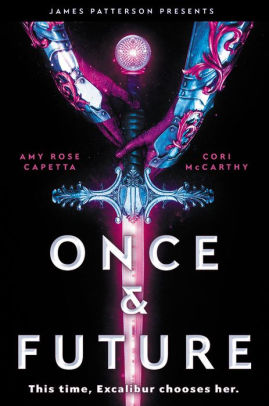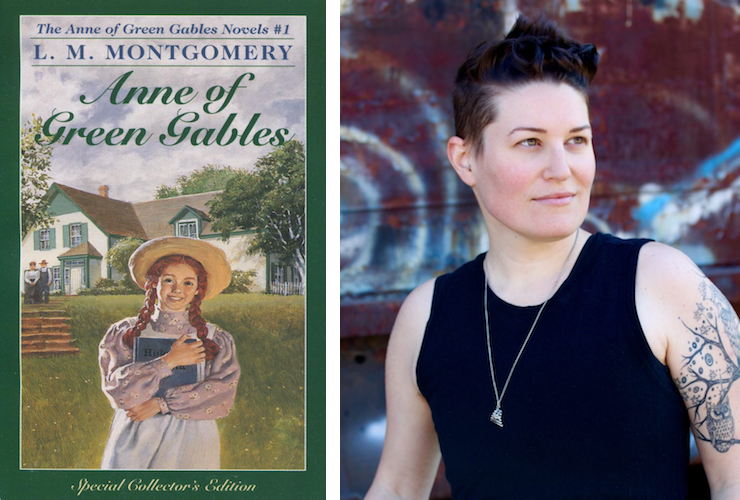Deep in the throes of top surgery recovery, I awoke this morning finally feeling optimistic. My love, Amy Rose, packed our child’s lunch while I brewed dark coffee. After the bus whisked our enchantingly talkative small person towards their daily destiny, we sat out on the back porch, watching June’s citrus sunshine melt the mist off the verdant Vermont mountains.
If you haven’t already gathered by the plethora of adjectives, this is about L.M. Montgomery.
It’s also about the word queer. Like many people in my age range—the quicksand between GenX and Millennial that is somehow both and neither—I grew up with the understanding that queer was a very bad word. It didn’t mean gay. Or different. It meant outcast. Loser. What was more, I never heard it in a plural form and that left young me wondering if queers didn’t come in groups, that the word and therefore the person must be inherently lonely. I’m pretty sure that’s exactly what they wanted me to think.
Yes, I’ve got some internalized homophobia baggage, which has created a unique difference between myself and my partner in life and writing, Amy Rose. Amy Rose grew up in the same generation gap, but her upbringing was less religious, less Midwestern, more openminded.
So imagine my surprise when I told her that we had been asked to write about what book first lit the fire in our little queer bellies, and we looked at each other and said the same name: Anne. With an e.
On the outside, Anne of Green Gables is an enchantingly talkative, acutely sensitive, feminist character for the ages. Anne is also a hero for those who have been maligned for being themselves. The attraction for the queer-at-heart audience only magnifies when you take a close look at one of the pivotal relationships in the story: Anne and Diana’s “friendship.” I use quotation marks here because their friendship is indeed crafted like a love story, with parallels to the inherent problems and joy within queer relationships.
Not only is the language concerning these two overflowing with passionate adjectives, but their settings are dreamy, their interactions hum with deep connection, and their plot beats align with romance hallmarks, for example the meet cute. In the chapter “A Solemn Vow and Promise,” Anne is set up with Diana on nothing short of a blind date. Their parental figures introduce them and then send them outside where they take each other in:
Outside in the garden, which was full of mellow sunset light streaming through the dark old firs to the west of it, stood Anne and Diana, gazing bashfully at one another over a clump of gorgeous tiger lilies.
The Barry garden was a bowery wilderness of flowers which would have delighted Anne’s heart at any time less fraught with destiny.
Anne and Diana’s first words to each other are literally a solemn vow and a promise to be bosom friends for their entire lives… which really kinda feels like the first literal example of U-Hauling, right?
Further hallmarks of Anne and Diana’s romance come in the form of their first breakup. In the chapter “Diana Is Invited to Tea With Tragic Results,” Anne and Diana have a unchaperoned date in which Diana accidentally gets drunk, resulting in Diana’s mother, Mrs. Barry, forbidding Diana from being Anne’s friend.
“I must cry,” said Anne. “My heart is broken. The stars in their courses fight against me, Marilla. Diana and I are parted forever.”
While the two girls search for ways to secretly meet, their relationship is prohibited because Mrs. Barry is certain that Anne is a bad influence. While not all queer relationships come with parental shade, it’s certainly a common enough feature to cut a little close to the bone. And it’s not until Anne does something extraordinary—saves the life of Diana’s little sister—that Anne is allowed back into Diana’s life. They have to fight to be together, and when they’re returned to each other, Diana gives Anne a gift, “a beautiful card with a wreath of roses on it and verse of poetry: ‘If you love me as I love you nothing but death can part us two.’”
I dare you to find writing that romantic when it comes to Anne’s encounters with Gilbert. And that’s because Anne of Green Gables isn’t a girl-meets-boy story. Anne falls for Prince Edward Island, Diana, the Cuthberts, and eventually Gilbert—although seriously give it a re-read. He’s crafted as a best friend instead of a love interest the entire time.
And this might be because L.M. “Maud” Montgomery might have been a queer person. We can’t know for sure, and she made sure of this when she re-wrote her childhood journals before her death, burning the originals. Ahem. Not sure what she was trying to hide… says the person whose teenage diaries include many, many ripped out pages.
I know about this journal burning because I happen to be friends with the talented Melanie Fishbane who wrote Maud, a young adult novelization of L.M. Montgomery’s teen life (Penguin 2017). Years ago, while Melanie was researching her novel, we all attended a writing retreat on Lake Michigan. At the time, Amy Rose and I were not officially together but officially inseparable. Mel noted the similarities in our closeness to the kinds of relationships that Maud had with her kindred spirit female friends and respectfully asked us about our relationship, hoping to gain a better understanding for her wonderful depiction of Maud.
Buy the Book


Once & Future
I can’t remember what Amy Rose and I said in return, but I think it was something like, “If it looks like love, sounds like love, and shines like love, it’s probably love.”
While we can never know how Maud might identify by today’s rainbow of identity labels, the affection between Anne and Diana is right there on the page, looking like love, sounding like love, shining like love. Amy Rose and I both remember it fondly and deeply—but neither of us remembered Diana’s line when Anne’s passionate friendship first comes at her with all the stealth of a lesbian bar on karaoke night:
“You’re a queer girl, Anne. I heard before that you were queer. But I believe I’m going to like you real well.”
Now in 1908 when Anne of Green Gables first published, queer meant odd. And in 1998, when I was learning that coming out in my suburban high school was the fast track to a loser, loner, outcast destiny, queer meant hate. But underneath the evolving definitions of the word—what’s as true in Montgomery’s writing as it is today—is that no one will love you as well as those who see all your differences, all your queerness, and love you for it.
In the end, Anne of Green Gables didn’t make me queer, but it made my longings for a different kind of love story feel real, important, and most of all, achievable. For over 120 years, readers have found a hero in Anne with an e, the quintessential girl who refuses to change to meet other’s expectations, instead teaching an entire island to love and accept her by sheer bravery and determination.
And if that’s not the fight song of being queer, I don’t know what else it could be.
Cori McCarthy (they/them) is the author of half a dozen young adult novels, including coauthoring Once & Future with their partner, Amy Rose Capetta. Amy Rose and Cori are also the cofounders of the Rainbow Writers Retreat, an annual, in-community retreat for aspiring LGBTQIAP+ children’s writers. Say hello on Instagram @cori_mccarthy or on Twitter @corimccarthy or learn more at CoriMcCarthy.com










